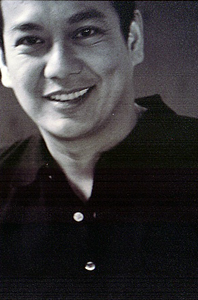
GROWING up watching a variety of films, it never occurred to Saw Teong Hin that it might be strange for a Chinese Malaysian like himself to direct Malay films.
“I never really thought about it until people started asking me again and again: ‘Why’s a Chinese [Malaysian] like you doing Malay films?’ But why not?” answers the Puteri Gunung Ledang (2004) and Apa Kata Hati (2008) director.
Puteri Gunung Ledang was his debut film. It won him the Best Director award at the 18th Malaysian Film Festival in 2005. Starring Datin Seri Tiara Jacquelina Abdullah, the film also inspired several seasons of a successful musical tie-in.
“Even as a teenager, I listened to [songs sung by] Sharifah Aini, Tracy Huang, Teresa Teng, Anita Sarawak…You never thought of it as Malay, Chinese or English music. It’s just music, you like it you like it lah,” says the producer-turned-director in an interview on 27 Sept 2010 in Bangsar.
TNG: When and where were you born?
Saw Teong Hin: I was born in Georgetown, Penang in 1962.
Can you trace your ancestry?
My parents were born here. They’re both Hokkien but my [paternal] great-grandfather adopted my grandfather. We don’t know for sure where he adopted him from.
When I go to Thailand, people often mistake me for a local. They are usually surprised that I’m not Thai. My great-grandfather had businesses in the northern region [of Malaya], so he may have adopted my grandfather from there. [So], I can’t tell you with certainty [about my ancestry].

My parents [had a] Chinese, Peranakan and Western wedding ceremony. My mother also used to berkemban and wear Nyonya-styled clothes for formal occasions. When I asked her: “Are we Peranakan?” she would say “Ya”. “Are we Chinese?” “Ya”.
Tell us some of the stories you remember the most from your parents or grandparents.
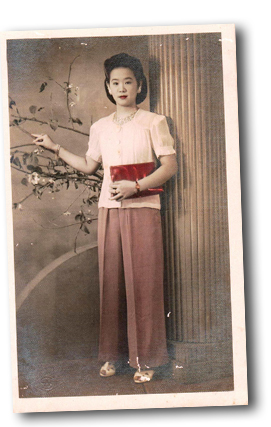
Both my parents originally came from quite wealthy families but by the time I was born, they were working class. My mother was a [homemaker] and my father a factory van driver. We were not impoverished but it was a constant struggle to make ends meet.
One of the strongest memories of my parents was my dad’s pride and my mum’s stoicism. Even though my mum came from quite a well-to-do family, I think my dad was too proud to let her family help. I grew up without much contact with our relatives.
And my mother, to her credit, did her best. Although it was an arranged marriage, she stood by my father. I think in those days people were made of stronger moral fibre. They stayed committed to their partner and family. Unlike now, when confronted with the slightest problem, divorce lah.
I remember even though there were a lot of fights, there was a lot of affection as well. From the little looks and gestures between them, you could see that they were pretty much in love with each other.
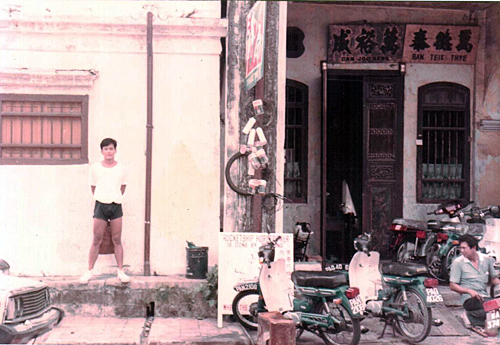
How was growing up in Penang like? What were some of your strongest childhood memories?
It was fun. Going around on your own and walking to school was safe. You never had to think twice about those things.
When I was in my early teens, my friends and I were still playing marbles, chasing and kalitoi. Sometimes we just thought [up] our own games. For example, get a bunch of flowers, tie them together and keep it in the air with our feet. We didn’t need PS2 (Play Station 2).
But my clearest impression of my childhood was actually my father’s unconditional love for me. It was remarkable. Like a traditional father, he didn’t talk much but we were so comfortable with each other we could sit together in silence.
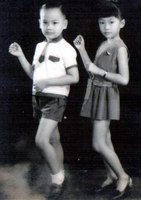
I’m the youngest among my parents’ six children, with a seven year gap between my nearest sibling and me. And according to my brothers and sisters, I was the only child that my dad actually sayang.
I remember going to the cinema every Sunday with my dad. We were always struggling [to make ends meet], but he somehow managed a movie every Sunday. If we had a bit more money, we would see two shows and have ice cream.
My sister also brought me to a few of them. The ones I remember clearly were Chitty Chitty Bang Bang, 101 Dalmatians, and Love Without End (新不了情) starring Jenny Hu.
I remember watching Journey to the West, the story about monkey king Sun Wu Kong. It was the first film I watched on my own as a child. And the first few English films I saw on my own were Fame and Whose Life Is It Anyway?
Of course there were also Tamil movies like Haathi Mere Saathi. It was a big hit. I think my mother watched it two, three times. Me, too (laughs). Bobby was another popular one.
I also remember seeing Malay movies. Adik Manja was very good. Tiada Esok Bagimu also made a deep impression on me.
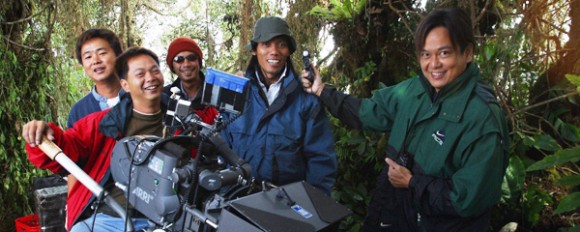
You can still remember the films you watched so clearly?
I grew up in Penang my whole life. The films showed me a world outside of my own. They really moved me. I never imagined I would one day end up in the industry though. I was just fascinated back then.
How much did it cost to watch a movie back then?
Third class was 30 sen, second class RM1 and I think first class about RM1.50.
You were seven years old in 1969. Do you remember anything from 13 May?
I do. Nothing untoward happened in our neighbourhood but somehow I remember images of teargas being shot.
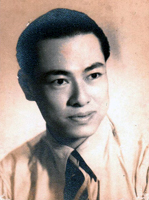
When the curfew was lifted, we would go out of the house but our parents would shoo us back in when they saw FRU (Federal Reserve Unit) trucks approaching from a distance.
There was also a story about my father.
He was driving home on that day, and he got stopped at a roadblock by some Malay [Malaysians]. My father was kind of like me, he didn’t look 100% Chinese and he was very dark. They shone the torchlight at him and let him pass.
The way my father told me was like the way I’m telling you now, he said: “Ya ya, they just waved me through.” But I’m sure he must have been terrified.
How do you relate to these stories as a Malaysian?
My consciousness of being a Malaysian only kicked in when I went to study in Singapore, when, during orientation, they asked who were the Singaporeans and who were the Malaysians.
Before that I never thought much about nationality or race. The way it was in Malaysia you just assumed everyone’s a Malaysian; you take it as a given. You never think: “This is a Chinese friend. This is a Malay friend.” They are all friends lah.
But after somebody raises it, then it enters your consciousness and it doesn’t go away. I guess that’s why there’s all this talk about being a Malaysian or Malay first.
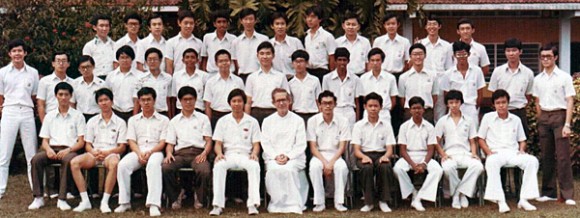
What did you study in Singapore and how did you end up being a film director?
I got a scholarship to study double physics and mathematics in NUS (National University of Singapore) but I didn’t graduate. I realised later on that my interest was not in science but I wasn’t allowed to switch courses.
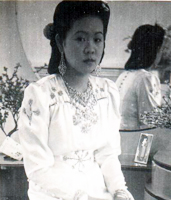
My mother really wanted to see me graduate as I was the first child in the family to enter university. But my parents were forgiving and just asked me to come home when I failed.
Because they were so nice about it, it made me feel worse. I decided not to go home and came to KL. I didn’t want to go back and live off them again. As an adult, I wanted to try to make a life for myself.
It was a struggle in the beginning. I was constantly moving during the first few weeks [from one friend’s place to another].
When I flipped through the yellow pages looking for a job, the first thing I came across that interested me under “A” was advertising. I started calling up agencies but nobody would see me. My highest qualification was HSC (now known as STPM). On hindsight, it was quite naïve of me.
The only one who asked me to meet her was Faridah Merican from O&M. She said she didn’t have a job for me after the meeting but she introduced me to Joe Hasham (now her husband), who kindly gave me a job.
I started off as a production assistant, sweeping floors, making coffee, carrying lights…But I learned fast and started producing TV commercials for Joe within six to nine months.
I guessed I was lucky. That turned my life around and gave me my profession.
So you started off with advertising…
Ya, I set up my own production house later and we did TV commercials and programmes. But after producing for almost 13 years, I got bored and wanted to do something else.
My then business partner suggested I try directing. I started directing music videos and commercials but after awhile I got bored again. I decided to focus full-time on feature films in 2000, and well, you know the rest of it.
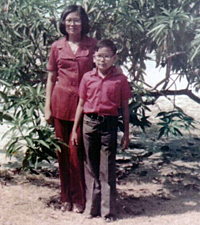
Describe the kind of Malaysia you would like to see in future.
It’s so ingrained in all of us now to think [along racial lines], that when somebody comes along and doesn’t think about it, it’s pointed out to them. I feel we’re a few steps back from where we were.
It might not be so easy to get back to [those innocent times], but I think we’re moving in the right direction, with the government’s 1Malaysia initiative and all the debates that are going on.
I’m not saying we’ve achieved tremendous change, but at least we’re thinking and talking about it, which are the first steps towards change. Hopefully we’ll end up with better understanding and acceptance of each other. ![]()
The book Found in Malaysia, featuring 50 of our best interviews plus four previously unpublished ones with Datuk Zaid Ibrahim, Tan Sri Rafidah Aziz, Datin Paduka Marina Mahathir and Ramli Ibrahim, is now available at all good bookstores for RM45.


Ben says
I love PGL. It is a very great movie.
James Goodyear says
What on earth is so special about a Chinese [Malaysian] directing a Malay film? If it were a mainland Chinese doing it, that would be worth commenting on, but not otherwise. This chap is for all intents and purposes a Malay of Chinese ancestry even if he chooses to deny that term and call himself “Malaysian” instead. It is nonsense.
Jews direct Anglo American, Russian, Greek, Arab, Swahili, Latin and English films every day. Indians have been directing and writing and starring as whites in English films for ages; Hungarians and Russians as migrants to the US have also been doing the same thing without adequate knowledge of the English language. Now that’s something worth commenting on. But this? Get a life. Your terrible patronising of the Malays is perhaps part of that great Chinese Asian tradition where everyone else is a gui or low-life devil.
Merah Silu says
I don’t share that view. I think Saw represents a good Malaysian and should be commended for his attitude.